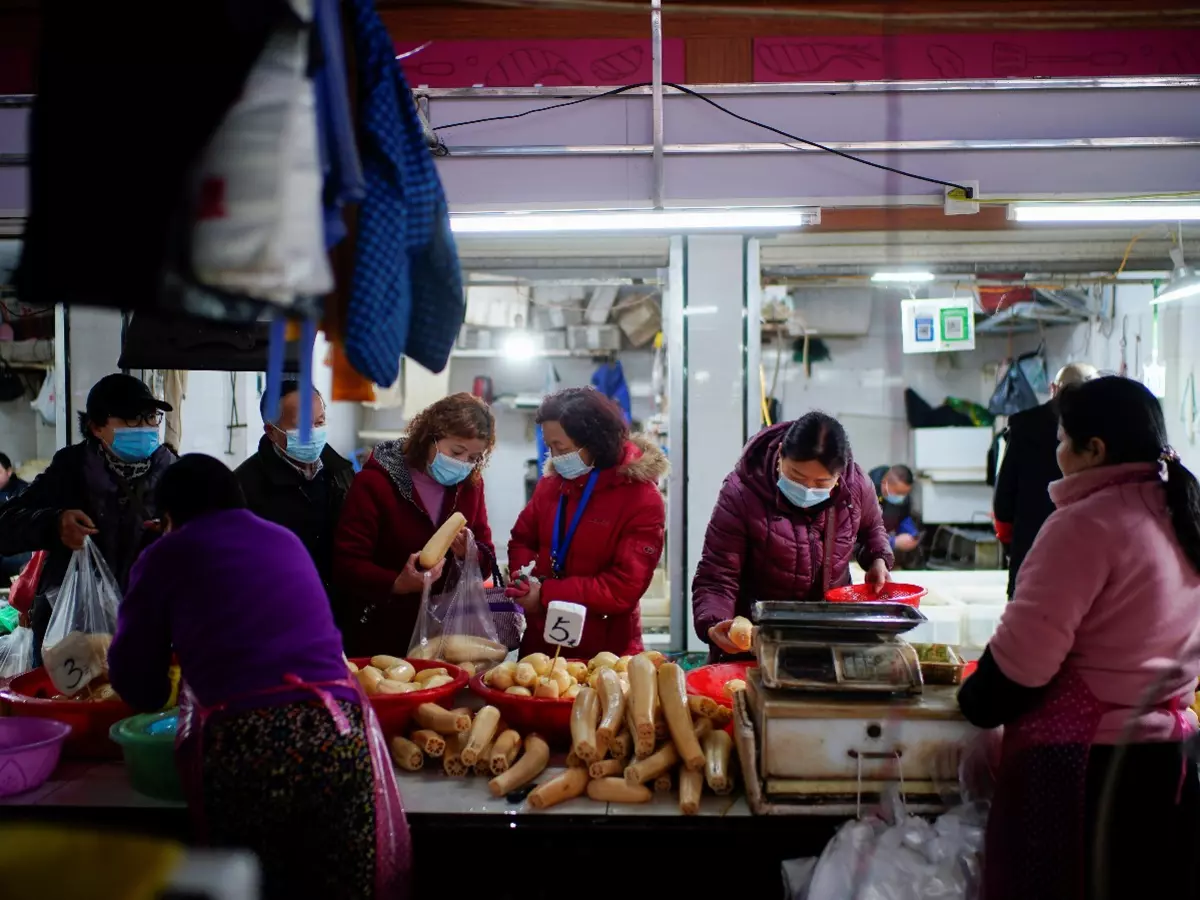Wuhan Wet Market Most Likely Origin Of COVID: WHO Probe Team Tells China
The scientists said they found no evidence to support theories that the disease leaked from the three virology labs in Wuhan and they had been given access to all three.

The Wuhan wet market is still the most likely hypothesis for the origin of the COVID-19 pandemic, according to members of a World Health Organization (WHO) delegation to China. The members of the delegation made the claim in a recent Chatham House briefing.
The scientists said they found no evidence to support theories that the disease leaked from the three virology labs in Wuhan and they had been given access to all three, Evening Standard reported.
 AFP
AFP
Why are zoologists pointing towards wet market?
Zoologist Dr Peter Daszak, president of NGO EcoHealth Alliance which works in the field of zoonotic disease, said the team had identified a viable conduit between the wet market in Wuhan and to regions where the closest relatives of COVID-19 are found in bats, reported Evening Standard. "It provides a link and a pathway by which these viruses could convincingly spill over from wildlife into either people or animals farmed in the region and then shipped into the market by some means," he said.
 Reuters
Reuters
He then suggested the disease came from domesticated or farmed animals which then got into the wet market.
How did the virus spread from a market?
One of the four scientists who joined the month-long mission earlier this year had stated four hypotheses on how the virus spread during a press conference last month. Peter ben Embarek, however, reiterated that "laboratory incident hypothesis is extremely unlikely to explain the introduction of the virus into the human population".
 AFP
AFP
"Our initial findings suggest that introduction through an intermediary host species is the most likely passway and one that will require more studies and more specific targeted research ... The findings suggest that a laboratory incident hypothesis is extremely unlikely to explain the introduction of the virus into the human population," the WHO expert had said.
Why is the UN being urged to ban wet markets?
As a result, the United Nations is being urged to ban wet markets around the world.
According to Animal Equality: Ą°Wet markets get their name in part from the blood, guts, scales, and water that soak the stallsĄ¯ floors, remnants of animals brutally killed so customers can eat freshly killed meatĄ"
 AFP
AFP
The Huanan market there was the site of the first known outbreak of the coronavirus in December 2019. International team members learned on the trip that meat from animals known to carry coronaviruses belonging to the same family as the pandemic virus were sold in the Huanan market, Daszak said as per the Wall Street Journal.
The findings by the WHO were slammed by the United States, raising concerns over the possibility of the Chinese government's interference in the WHO's recent investigation.
